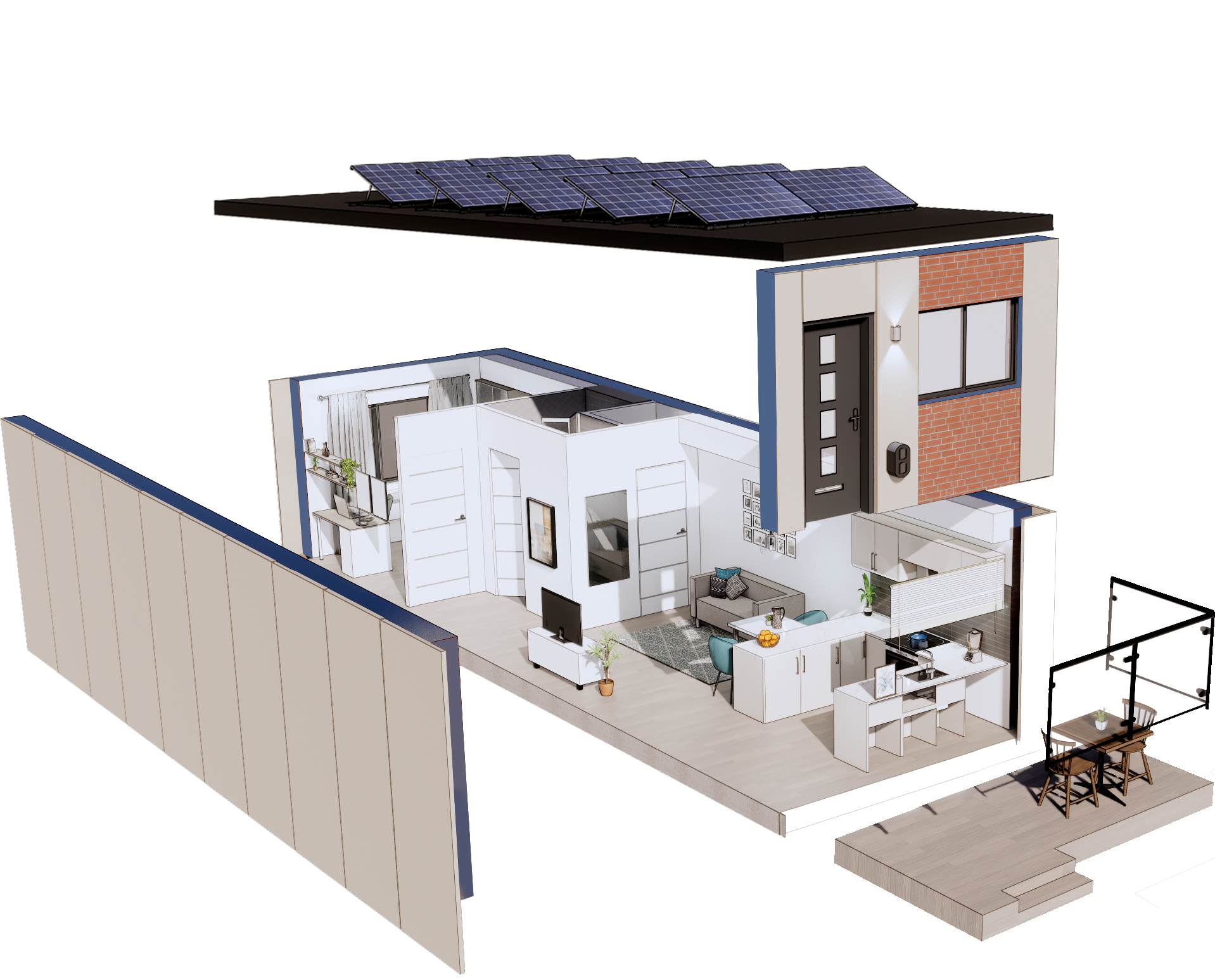Homelessness
Setting the standard to solve the issue.
At More Housing each decision is backed up by research; we can’t help people to rebuild their lives without first trying to understand their headspace. Notable charities such as Crisis, Shelter and by mainstream media have demonstrated repeatedly that most temporary accommodations are unsuitable for living, let alone a positive fresh start.
People need homes not lockups.
Issues such as the inability to lock internal doors in shared temporary accommodations for security, lead to living in a state of fear. Residents repeatedly complain about not having their own front door or privacy. Accommodations are cramped having little storage, with nowhere for children to do homework and many with very poor insulation. Life here has a dampening effect on the mental health of occupants. They lack personalisation with no freedom to hang up personal photos or space to work from home.
They are certainly not designed with families in mind. Polly Neater, chief executive of Shelter, said that the struggling families are being forced to accept ‘downright dangerous accommodation because they had nowhere else to go’. They create an ‘intimidating and potentially unsafe environments’ for children with many families of two to three children, placed in one bed properties.

Currently figures show that the UK has 1.1m people on the waiting list for social housing yet only 6,600 new social homes were delivered last year. UK needs 340,000 new homes per year, of which 136,000 must be affordable; in contrast about 60,000 affordable homes were built in 2019. Temporary Accommodations are being used as an interim solution until more social or affordable homes are built which unfortunately still feels like a distant luxury.
In the past year alone, councils have spent nearly £1.2bn on Temporary Accommodations (e.g. hostel, bed and breakfast etc.) to provide a place to sleep for the desperate homeless people (an increase of 9% in the last year and 55% in the last five years). This annual expenditure is expected to increase rapidly in coming years.
87% of the total spent went to private entities, an increase of 66% in the last five years from £621 million in 2014/15 to £1 billion in 2019/20. More than a third (38%) of the money paid to private accommodation providers was spent on emergency B&Bs, £393 million, considered some of the least suitable places for families with children to live. Spending on emergency B&Bs has increased by a staggering 73% in five years.

